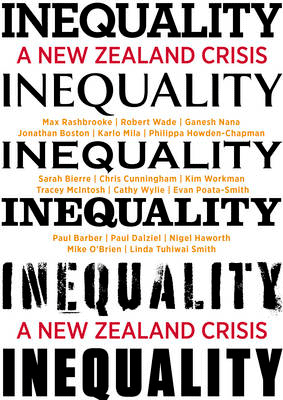 Feature: Inequality a New Zealand crisis
Feature: Inequality a New Zealand crisis
August 2013
It’s arrived at last! This much awaited New Zealand book was officially launched at the National Library on Thursday 27 June with much fanfare, enthusiasm and goodwill.
It tells the story of rising income inequality in New Zealand, ‘where the gap between high and low incomes has widened faster in recent decades than in most other developed nations’.
It seeks to explore the nature, causes and consequences of income inequality on our communities and looks ahead to how we might return to a more equal society. There is an impressive array of contributors including:
- Karlo Mila, ‘Inequality means watching people close to you … persistently struggling… to keep their households afloat, to do their best for their children and to make good decisions by weighing up the constrained choices on offer’.
- Kim Workman and Tracey McIntosh, ‘..A wider commitment to reducing income inequalities would logically be complemented by more egalitarian forms of justice. These alternative models, based on support not punishment, would emphasise the fairness and compassion that are at the heart of egalitarianism’.
- Paul Barber, ‘Understanding fairness involves empathy, as a society or community, as well as individually. It involves the ‘capacity to recognise and at least to some extent share another’s situation, feelings or motives’. Without this quality of empathy, the notion of fairness loses much of its moral meaning.’
- Max Rashbrooke, ‘Today’s extremes of wealth and poverty in New Zealand are striking – especially because after the Second World War, we were one of the world’s more equal societies. Landmark reforms by two governments … helped make New Zealand a notably egalitarian country by world standards’.
- Jonathan Boston, ‘While equality is highly valued, there is huge disagreement about why equality matters and what precisely should be equalised’.
Inequality: A New Zealand Crisis edited by Max Rashbrooke, Bridget Williams Books, 2013. $39.99 at Epworth Books, Karori Rd.
These excerpts taken from the fortnightly online newsletter of the New Zealand Christian Council of Social Services (NZCCSS) Policy Watch, 9 July.